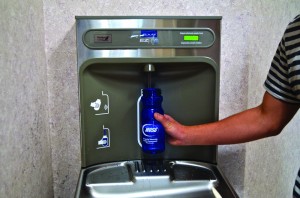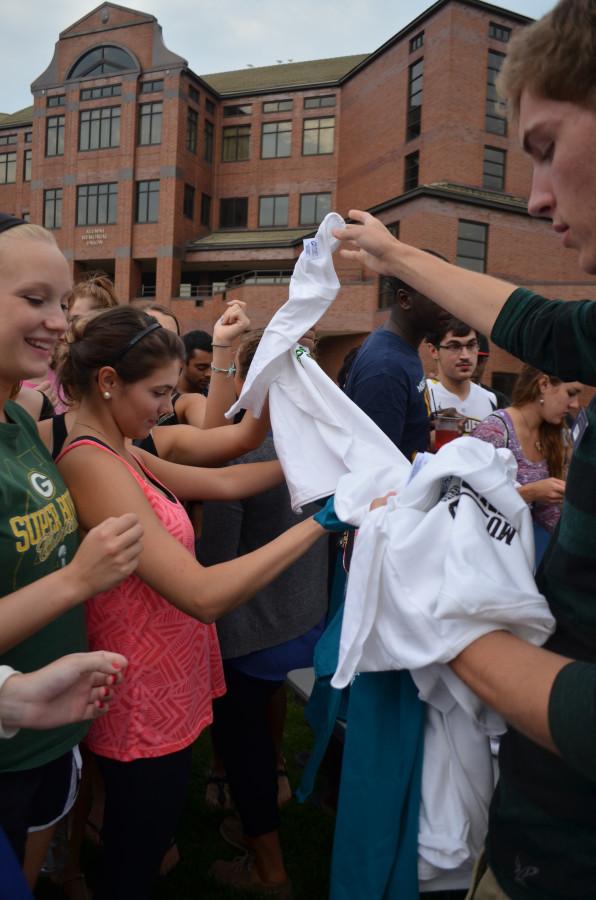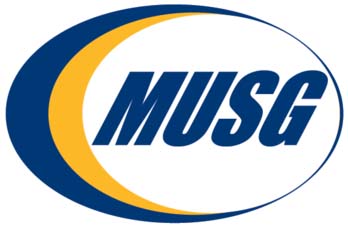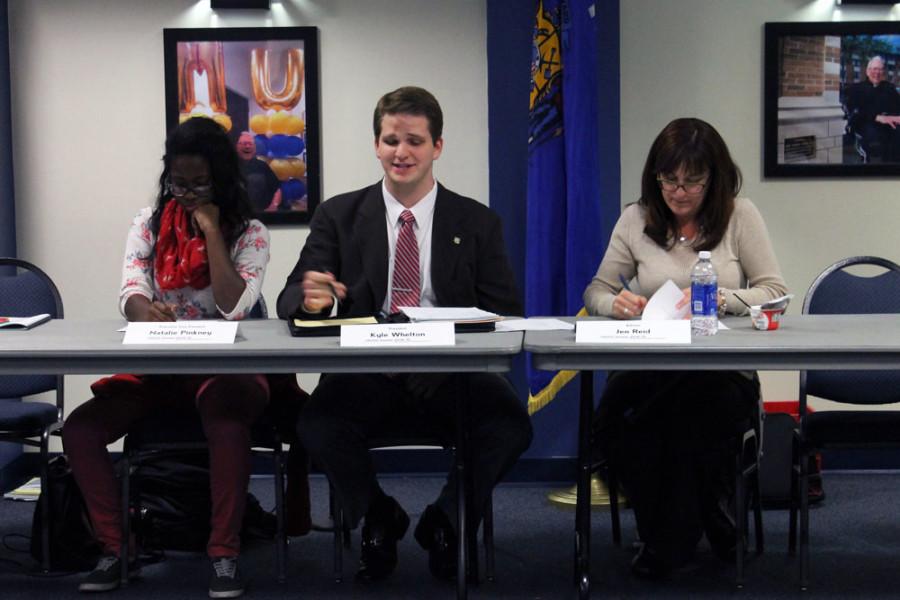
Students living in residence halls received refillable water bottles rather than the coffee mugs Marquette Student Government distributed the past two years.
The Elkay EZH2O systems, which include digital refilling stations and gooseneck water bottle fillers, were installed on existing water fountains in June and aim to prevent students from purchasing plastic water bottles.
Estefania Elizondo, a junior in the College of Communication and one of the MUSG senators who authored the legislation for the water bottle refilling stations, said widespread campus support for an environmentally-friendly project encouraged the senate to pass the bill.
“In the resolution, we quoted (former university president) Father Pilarz’s letter advocating for more green initiatives on campus,” Elizondo said. “The student organization Students for an Environmentally Active Campus (SEAC) also had a large part in this resolution. They attended both extremely long senate meetings to get their point across and did a wonderful presentation on why MUSG should fund this project.”
In his letter, Pilarz said: “Marquette strives to develop men and women who … actively enter into the struggle for a more just society” and that “all aspects of sustainability are part of that just society.”
“Ultimately, my goal is to have a completely green campus with no plastic water bottles on sale, so a full- on ban of plastic water bottles,” Elizondo said.
Despite a strong push from students for the water bottle refilling stations, Elizondo said the decision was not easy.
“We want MUSG to be financially responsible, and therefore there were concerns over the amount of money that was going to be spent on this initiative,” she said.
In total, $11,690 was allocated for the resolution. The money came from MUSG’s reserve fund, which both Elizondo and MUSG President Kyle Whelton feel should be spent on projects that directly benefit students.
“What we do strive for is to have this money go back to the students,” Elizondo said. “Throughout their time at Marquette, they should see that money go back to them in their activities and other things that they want to fund.”
As MUSG plans to spend more of the reserve fund this year, it should expect more difficult decisions allocating the money to campus initiatives. Although it has made significant progress on the reserve fund, Whelton said it is “egregiously large.”
Last year, the reserve fund stood at about $250,000 before MUSG tapped money for projects like the water bottle filling stations and providing students with reusable to-go containers for dining halls.
Whelton estimated the reserve fund now stands at about $163,000.
MUSG’s financial policies mandate that the fund be at least 10 percent of the annual operating budget, providing a financial pillow in the case of a budget deficit. That places the requirement close to $50,000.
There are strict stipulations on what the money can be used for, though. For example, projects running more than a full year can not be fully sponsored by the fund.
Whelton said that if the opportunity arises, MUSG will commission more projects that would reduce waste at Marquette.
“We are extremely proud of the water bottle filling stations and the Ozzi reusable to-go container systems we put in place this year and will continue to seek opportunities to make Marquette more sustainable,” Whelton said.






